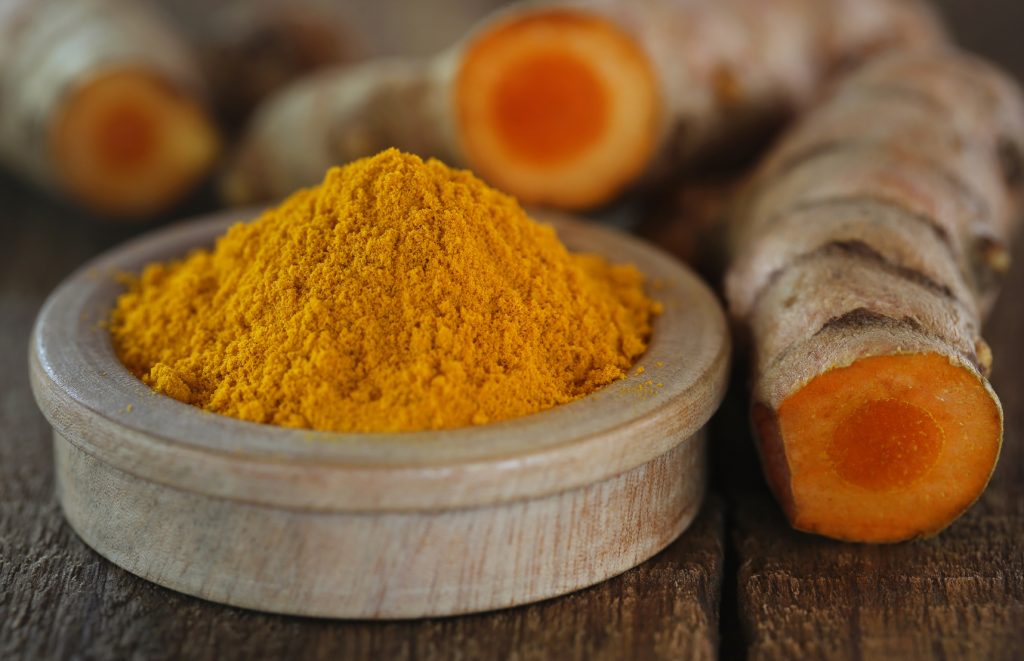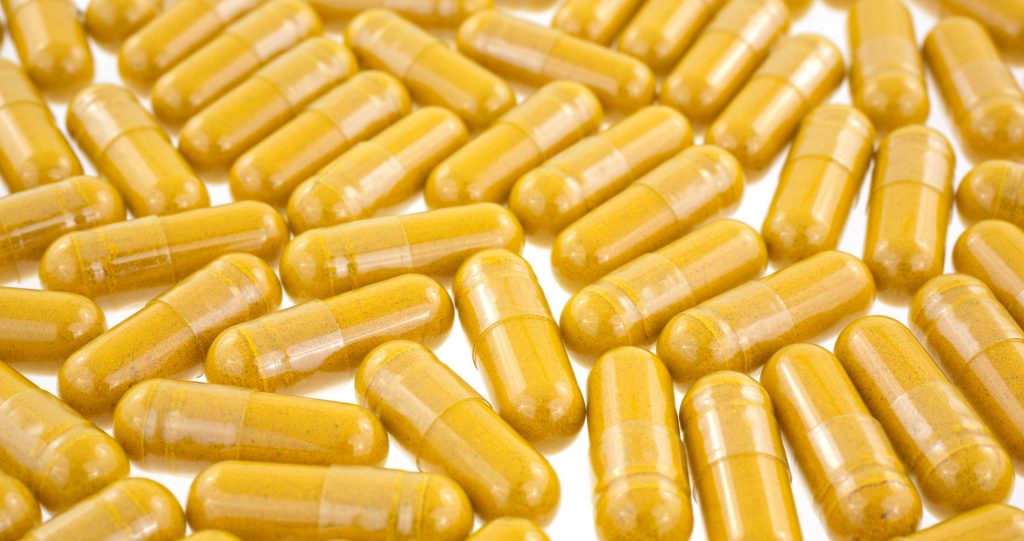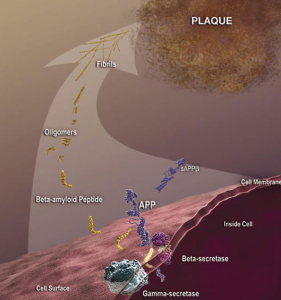
Turmeric, or Curcuma longa (if you will), is perhaps the tastiest ingredient that will ever be reviewed on this site–pending the nootropic status of bacon.
I say this as a big curry fan, knowing that some of you aren’t too fond of the spices, finding them particularly, ehm… how do you say: diarrhea-inducing.
That’s alright, we all have our own personal quirks & malfunctions, and I’m not here to make light of them (particularly if they involve the mudbutt). But what I am here to do is explore this notion of turmeric being a nootropic. To some of the extreme nootropic users, this notion may come across as ludicrous & lame. To many others, it may make sense: Turmeric is an awesome antioxidant with numerous health benefits, several of which occur in the brain.
It’d almost be weird if turmeric did nothing for brain health & cognition.
Yet, does turmeric actually enhance cognition? Let’s find out.
Page Contents
How Turmeric Is Supposed to Work
As I’m writing this, there’s a naggy, hypercritical redditor sitting in my head, whispering that “turmeric is not a good nootropic.”
Given that the only things that seem to constitute “good nootropics” on /r/Nootropics anymore are questionably risky drugs, I have a feeling the topic of “Turmeric as a Nootropic” may incite scorn. But whatever: Haters gonna hate. Likers gonna like.
And when it comes to turmeric, consider me a liker because I like this spice a lot. Not just for its super sexy spicy taste but for its well-regarded benefits on brain health & long-term cognition.

FOR THE RECORD: Turmeric’s status as a nootropic is questionable and, technically, probably untrue. If nootropics are required to enhance cognition, turmeric only seems to do this for animals & under “damaged” conditions (e.g. traumatic brain injury). Under normal conditions it provides (at best) a good nutritional defense against age-related neurodegeneration (that may develop anyways, if we’re being realistic).
Regardless, there’s enough research on this spice to warrant adding it to your diet, or even picking up an enhanced turmeric supplement, considering its well-demonstrated brain benefits. According to le scienze, turmeric seems to benefit brain health through the following bio-actions:
Protects Against Oxidation
Due to the numerous bodily systems & pathways (all of them?) affected by free radical damage, antioxidants have become revered in the amateur online medical community as some sort of fountain of youth compounds. Curcumin is often held at the center of such pseudoscientific (pseudoreligious) discussions, alongside the likes of resveratrol & pterostilbene. Yet, the reverence is somewhat earned given the potent, powerful antioxidant capabilities possessed by curcumin, in effect giving the turmeric compound reliable neuroprotective value against brain damaging oxidation.
Reduces Brain Inflammation
Curcumin has been widely demonstrated to interact with numerous molecular factors involved in inflammation, certain research indicating that curcumin may even act as a therapeutic agent in certain autoinflammatory & autoimmune conditions. Combined with curcumin’s antioxidant potential, the anti-inflammatory benefits may offer significant protection against neurodegenerative conditions later in life.
Fights Amyloid Plaques
The irregular blockage of protein clusters in the brain, known as amyloid plaque, seems to be a major contributing factor to age-related cognitive degeneration. Curcumin is believed to partially reduce the risk of degeneration by inhibiting the formation of amyloid aggregates, keeping brain pathways clean & flowing for now & later cognition.
Turmeric Benefits

The cumulative benefits of antioxidant, anti-inflammatory, amyloid plaque inhibitory bio-actions work together towards one major goal: Defending the brain against age-related cognitive decline. With heavy turmeric consumption comes higher brain cell survival rates, enhanced long-term mental performance, and even acute boosts on cognition in certain cases.
Don’t believe me? Check out India: Compared to American citizens aged 70-79, India’s counterparts enjoy a 4x lower rate of Alzheimer’s. While technically there can be any number of factors involved in this disparity, spicy antioxidants seem to play an important role–at least to such a degree that researchers felt inclined to dedicate thousands upon thousands of studies in exploration of turmeric’s natural therapeutic potential.
Researchers Have Suggested Turmeric Might:
Bolster Neuroprotection Against Neurodegenerative States
Curcumin’s brain heath potential against Alzheimer’s & other neurodegenerative states is largely explored via animal studies, but the data is optimistic:
- Brain plaque reduction by 43-50% (study)
- Restoration of plasticity in injured neurons (study)
- Significant reversal of oxidative stress & DNA damage (study)
- Memory & learning improvements on injured rat models (study)
DISCLAIMER: I’m not in the business of discussing clinical neurodegenerative states (e.g. Alzheimer’s), which is why I generally avoid them. However, the animal research is so heavily, cumulatively geared towards this topic that I’d feel disingenuous avoiding it here. It’s important to note that animal models often don’t translate well to human physiology, which I’ll explain further a few subheaders below.
Enhance Various Elderly Cognitive Functions
To be more specific: 1,010 elderly Asians, aged between 60 & 93, reported on their curry consumption, while also being tested on their mental state (via Mini-Mental State Examinations) in a population-based cohort study. The “Mini-Mental States” that were measured included cognitive functions such as attention span, language, memory, calculation & awareness.
The findings: Subjects who often consumed curry scored higher on the cognitive functioning tests than those who consumed little to no curry. Due to the study’s design, the observations are definitive but do establish a promising connection between curry consumption & elderly cognitive functioning.
Improve Performance on Attention & Memory Tasks

In randomized, double-blind, placebo-controlled study the Longvida® brand of turmeric, extracted for enhanced bioavailability, was administered at 400 mg to 60-85 year olds for 4 weeks. Throughout the study, long- & short-term mental performance was measured & compared between the Longvida & placebo groups, testing for changes in working memory, alertness, relaxation, fatigue, & mood.
Compared to placebo, Longvida administration demonstrated “significantly improved performance on sustained attention and working memory tasks” only one hour after a single serving. By the end of the 4 weeks Longvida curcumin seemed to improve long-term measures on memory, mood, & attention, warranting further investigation into the clinical potential of curcumin.
Differ in Neuroprotective Value Between Humans & Animals
While the animal models suggested of significant neuroprotection against Alzheimer’s & other neurodegenerative states, this 24-week human study was unable to demonstrate any evidence of efficacy with regards to curcumin (as C3 Complex®) reversing or reducing neuron damage. In conclusion, the researchers acknowledged that, due to the animal studies, curcumin deserves more scientific exploration, and that it may have failed in their study due to curcumin’s known poor bioavailability (and/or due to the metabolic differences between humans & animals).
How to Take Turmeric
- Plain turmeric (whole root or dry powder) is commonly dosed at 1.5 to 3 grams daily, essentially the average intake of a spicy Indian diet.
- Turmeric standardized to 95% curcuminoids typically centers around 400 to 600 mg dosages, taken 2 – 3 times daily.
- The smaller the curcuminoid standardization the higher number of daily servings you’ll need to reach the same effect.
- Liquid supplements typically call for 50 to 100 drops daily. Mix with water.
Turmeric + Black Pepper = Bioactivity!
Due to the poor absorption of curcumin, with only an estimated 60% reaching the bloodstream, the spice’s bioavailability is limited. Yet, one study found the combination of curcumin with black pepper’s piperine compound to boost the spice’s bioavailability by 20x. Hopefully you like your spice extra spicy!
My Experience with Turmeric
Curry is my jam, almost literally (if we’re to equate “jam” with “sauce”).
I have a secret sauce recipe, that I refuse to share with you all (I suspect it’s really not that good anyways), that includes turmeric as its base. It’s my dinner go-to that I like to spread on my chicken and/or dip my chips into, if I’m feeling especially quirky for the night.

It’s also the base of Golden Milk, the traditional honeyed Ayurveda health drink that seems to be all the rage on every Dr. Oz-like listicle posted online. The claims with Golden Milk are largely attributed to the benefits of turmeric: anti-inflammatory boosts on immunity.
I drink it because it tastes good, and also to secretly look down on everyone else for not being as healthy & hip & trendy as I. (#IAmTraderJoe) However, I don’t go out of my way to supplement “nootropic” turmeric extracts. Namely because I’m not yet old enough for turmeric extracts to have much of an effect on my cognition.
It’s simply not a necessary addition to my nootropic stack. Not yet.
But it does help me assuredly rest feeling like I’m frequently consuming a nutritional compound associated with neuroprotection and a decreased risk of poor elderly cognition. Granted, I bear no illusions that turmeric automatically grants me sufficient prevention of neurodegeneration, yet I still pat myself on the back for it.
Because I’m, like, smug or something.
Is Turmeric a Good Nootropic?
Turmeric is solid nutrition. But is it a bona fide “nootropic”?
There are certain cognitive states in which turmeric is recommended as a nootropic–i.e. age-related cognitive decline, traumatic brain injury, etc. Under these conditions turmeric seems to possess significant cognitive enhancing neuroprotective value.
Under “normal” conditions turmeric seems to possess only the neuroprotection, theoretically speaking. I wouldn’t necessarily take the spice for quick boosts on cognition, nor would I recommend it for such. Yet, given its importance to brain health & elderly cognition, it’s not a bad investment.
Many users advise using it under “damaged” conditions.
I use it under normal and damaged conditions as a “better-safe-than-sorry” substance. This may not be the sexiest notion of cognitive enhancement, but not all spices have to associate with sex.
Pervert.
Overall Turmeric Nootropic Power Rating
Brain Energy
Neurotransmitters
Cerebral Circulation
Brainwaves
Brain Regeneration
Neuroprotective
Leave a Reply